Peugeot 308 vs Tesla Model 3 - Differences and prices compared
Compare performance (195 HP vs 460 HP), boot space and price (29200 £ vs 34300 £ ) at a glance. Find out which car is the better choice for you – Peugeot 308 or Tesla Model 3?
Costs and Efficiency:
When it comes to price and running costs, the biggest differences usually appear. This is often where you see which car fits your budget better in the long run.
Peugeot 308 has a somewhat advantage in terms of price – it starts at 29200 £ , while the Tesla Model 3 costs 34300 £ . That’s a price difference of around 5040 £.
In terms of energy consumption, the advantage goes to the Tesla Model 3: with 13.20 kWh per 100 km, it’s to a small extent more efficient than the Peugeot 308 with 15.60 kWh. That’s a difference of about 2.40 kWh.
As for electric range, the Tesla Model 3 performs distinct better – achieving up to 750 km, about 300 km more than the Peugeot 308.
Engine and Performance:
Power, torque and acceleration are the classic benchmarks for car enthusiasts – and here, some clear differences start to show.
When it comes to engine power, the Tesla Model 3 has a decisively edge – offering 460 HP compared to 195 HP. That’s roughly 265 HP more horsepower.
In acceleration from 0 to 100 km/h, the Tesla Model 3 is decisively quicker – completing the sprint in 3.10 s, while the Peugeot 308 takes 7.60 s. That’s about 4.50 s faster.
In terms of top speed, the Tesla Model 3 performs to a small extent better – reaching 262 km/h, while the Peugeot 308 tops out at 225 km/h. The difference is around 37 km/h.
There’s also a difference in torque: Tesla Model 3 pulls decisively stronger with 660 Nm compared to 300 Nm. That’s about 360 Nm difference.
Space and Everyday Use:
Whether family car or daily driver – which one offers more room, flexibility and comfort?
Both vehicles offer seating for 5 people.
In curb weight, Peugeot 308 is noticeable lighter – 1453 kg compared to 1822 kg. The difference is around 369 kg.
In terms of boot space, the Tesla Model 3 offers distinct more room – 594 L compared to 412 L. That’s a difference of about 182 L.
When it comes to payload, Peugeot 308 clearly perceptible takes the win – 503 kg compared to 333 kg. That’s a difference of about 170 kg.
Who wins the race in the data check?
The Tesla Model 3 is clearly superior overall in the objective data comparison.
This result only shows which model scores more points on paper – not which of the two cars feels right for you.
Costs and Consumption
View detailed analysis
Engine and Performance
View detailed analysis
Dimensions and Body
View detailed analysis
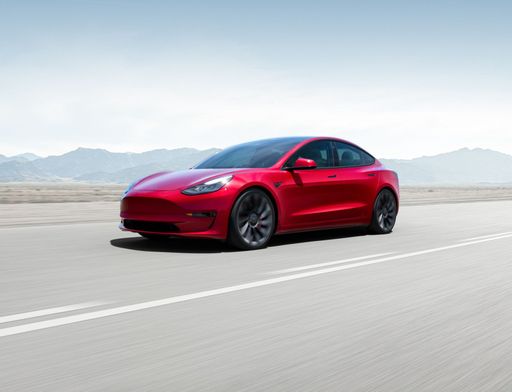
Tesla Model 3
Peugeot 308
The Peugeot 308 brings a sleek, feline profile and an unexpectedly upscale cabin, with clever packaging and materials that feel a touch more premium than you might expect. It’s composed on the road, easy to live with for daily life, and a smart choice if you want a stylish hatch that still behaves when the road gets interesting.
details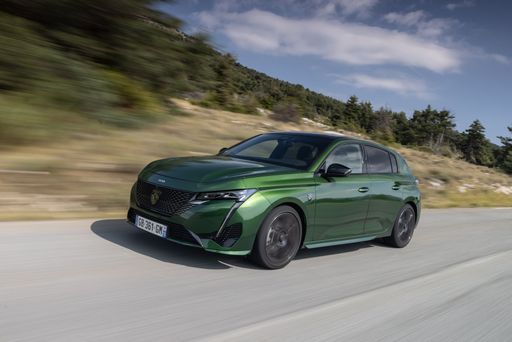
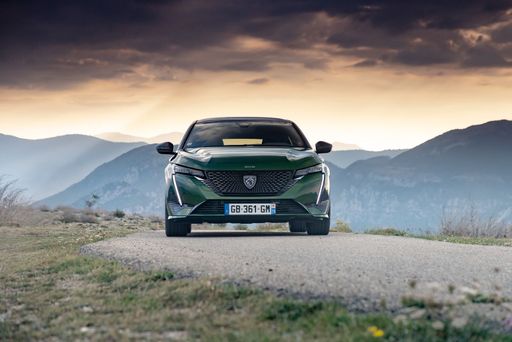
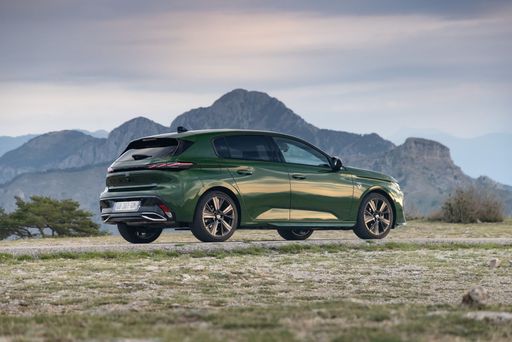
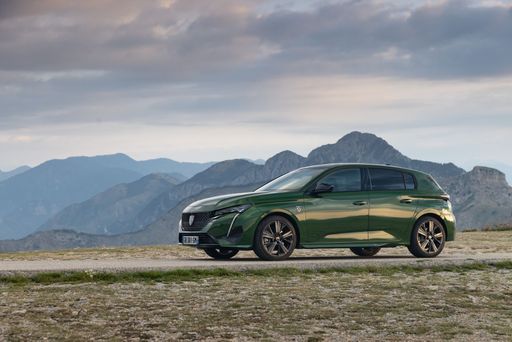
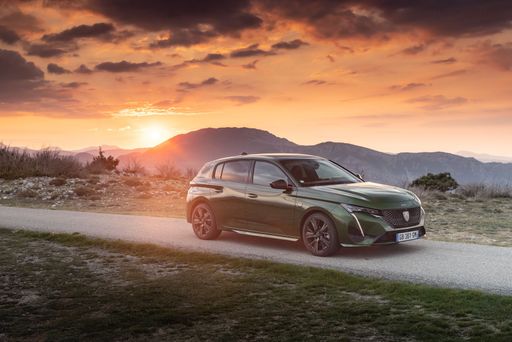
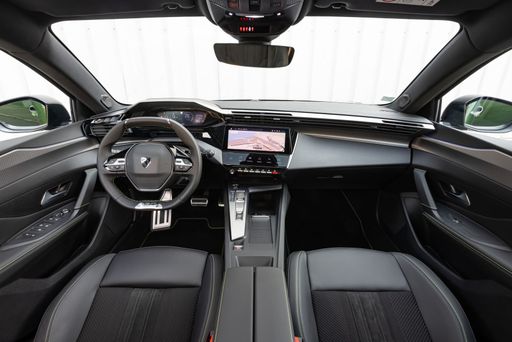
Tesla Model 3
The Tesla Model 3 slices through daily commuting with a silent, confident shove that makes petrolheads reassess their life choices, while its minimalist cabin feels more like a slick gadget gallery than a traditional car interior. For buyers after a fuss-free, tech-forward electric with plenty of grin factor and low running drama, it’s hard to beat—just don't be surprised when the car updates itself overnight.
details
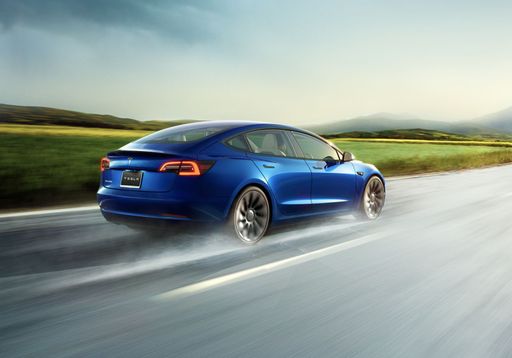
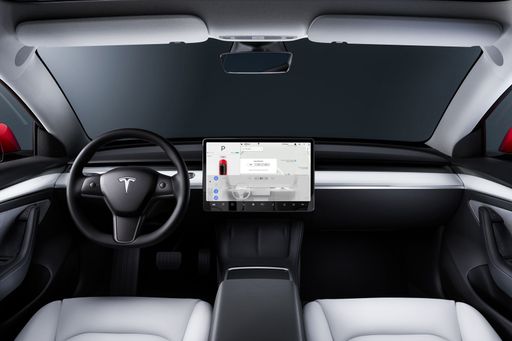
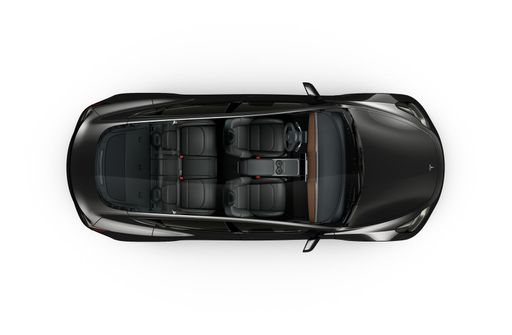
Costs and Consumption |
|
|---|---|
|
Price
29200 - 42600 £
|
Price
34300 - 50100 £
|
|
Consumption L/100km
2.3 - 5 L
|
Consumption L/100km
-
|
|
Consumption kWh/100km
15.60 kWh
|
Consumption kWh/100km
13.2 - 16.7 kWh
|
|
Electric Range
78 - 450 km
|
Electric Range
550 - 750 km
|
|
Battery Capacity
0.40 kWh
|
Battery Capacity
64.5 - 83 kWh
|
|
co2
0 - 129 g/km
|
co2
0 g/km
|
|
Fuel tank capacity
42 - 52 L
|
Fuel tank capacity
-
|
Dimensions and Body |
|
|---|---|
|
Body Type
Hatchback
|
Body Type
Sedan
|
|
Seats
5
|
Seats
5
|
|
Doors
5
|
Doors
4
|
|
Curb weight
1453 - 1749 kg
|
Curb weight
1822 - 1929 kg
|
|
Trunk capacity
314 - 412 L
|
Trunk capacity
594 L
|
|
Length
4367 mm
|
Length
4720 - 4724 mm
|
|
Width
1852 mm
|
Width
1850 mm
|
|
Height
1438 mm
|
Height
1431 - 1440 mm
|
|
Max trunk capacity
1258 - 1323 L
|
Max trunk capacity
-
|
|
Payload
430 - 503 kg
|
Payload
303 - 333 kg
|
Engine and Performance |
|
|---|---|
|
Engine Type
Petrol MHEV, Diesel, Plugin Hybrid, Electric
|
Engine Type
Electric
|
|
Transmission
Automatic
|
Transmission
Automatic
|
|
Transmission Detail
Dual-Clutch Automatic, Automatic Gearbox, Reduction Gearbox
|
Transmission Detail
Reduction Gearbox
|
|
Drive Type
Front-Wheel Drive
|
Drive Type
Rear-Wheel Drive, All-Wheel Drive
|
|
Power HP
131 - 195 HP
|
Power HP
283 - 460 HP
|
|
Acceleration 0-100km/h
7.6 - 10.6 s
|
Acceleration 0-100km/h
3.1 - 6.1 s
|
|
Max Speed
170 - 225 km/h
|
Max Speed
201 - 262 km/h
|
|
Torque
230 - 300 Nm
|
Torque
420 - 660 Nm
|
|
Number of Cylinders
3 - 4
|
Number of Cylinders
-
|
|
Power kW
96 - 144 kW
|
Power kW
208 - 338 kW
|
|
Engine capacity
1199 - 1598 cm3
|
Engine capacity
-
|
General |
|
|---|---|
|
Model Year
2025
|
Model Year
2025
|
|
CO2 Efficiency Class
C, D, B, A
|
CO2 Efficiency Class
A
|
|
Brand
Peugeot
|
Brand
Tesla
|
Is the Peugeot 308 offered with different drivetrains?
Available configurations include Front-Wheel Drive.




